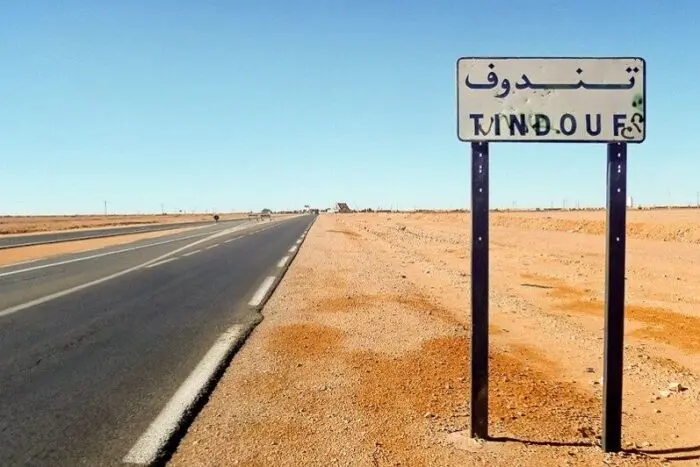While humanitarian aid from the European Union, World Food Programme, Red Cross, and over 50 international organizations is officially destined for the Tindouf camps, it first arrives at Oran Port in Algeria—only to be diverted in large part to secret warehouses inside Algerian territory, without any independent monitoring.
High-quality Canadian wheat meant to feed starving families is sold on black markets in Algeria and Mauritania, replaced with substandard food. Oil, eggs, flour, medical supplies, wheelchairs—even tents and school bags—are converted into profitable goods, leaving women and children waiting in vain for aid that never reaches them.
A Documented Corruption System Under Algerian Supervision
Despite the principle of free humanitarian access, Algeria has imposed what amounts to a “tax” on aid shipments, ranging between 5% and 10%, according to several sources. The European Parliament condemned this in a 2020 resolution, accusing both Algeria and the Polisario Front of running a systematic looting scheme.
Wikileaks revelations from 2009 confirmed manipulation of beneficiary figures by the so-called “Sahrawi Red Crescent”, which inflated refugee numbers to justify receiving excessive aid, much of which ends up in illicit trade. No official census has been allowed in Tindouf since the 1970s, giving free rein to data falsification. While the official figure claims 170,000 refugees, realistic estimates suggest only 45,000 to 60,000, meaning the surplus becomes profit for corrupt elites.
U.S. Action and European Suspicion
Since 2019, the United States has pushed for a full audit of aid distribution mechanisms, reducing unmonitored contributions. CIA and USAID reports have repeatedly flagged transparency issues, prompting adjustments to U.S. support programs.
In Europe, the European Parliament’s Development Committee raised the alarm in July 2020. MEP Dominique Bilde accused Algeria and the Polisario of exaggerating figures and monetizing aid, even financing military acquisitions such as tanks from the proceeds. The EU Crisis Management Commissioner at the time acknowledged “doubts regarding the actual figures.”
In March 2023, the UN Secretary-General reiterated the call for an official census in Tindouf. An internal WFP report also found that aid was being distributed to families with no urgent need, worsening inequalities between genuine and fake beneficiaries.
Tindouf’s New Aristocracy: Elites Feeding on Tragedy
The Polisario leadership has morphed into a privileged class, enriched by corruption. While camp residents live in misery, leaders enjoy luxury villas in Spain, plush offices in Nouakchott and Nouadhibou, and send their children to schools in Cuba and France.
Even worse, access to aid is used as a tool of political loyalty. According to Modern Ghana, families of fighters are rewarded with food rations in exchange for military service.
Algeria: The Complicit Host State
As the host country, Algeria bears full legal responsibility for what occurs on its territory. It manages the reception, transportation, storage, and distribution of aid, while refusing any independent financial audit. A Human Rights Watch report confirmed that Algeria cannot evade its human rights obligations in this context.
In 2023, Norwegian activist Erik Cameron stated that Algeria is “a partner in systematic theft”, using the suffering in the camps as a political bargaining chip in international arenas.
2025: The Scandal Deepens Amid Deafening Silence
Despite decades of exposure, the corruption continues—even more discreetly. Interwoven interests between Polisario elites and Algerian bureaucracy make reform nearly impossible. By December 2025, UN agencies and NGOs estimated Tindouf’s basic humanitarian needs at $214 million.
Yet donor fatigue is growing. The international community is increasingly reluctant to fund a corrupt system, while Algeria evades accountability and maintains a deliberate state of misery in the Tindouf camps.
